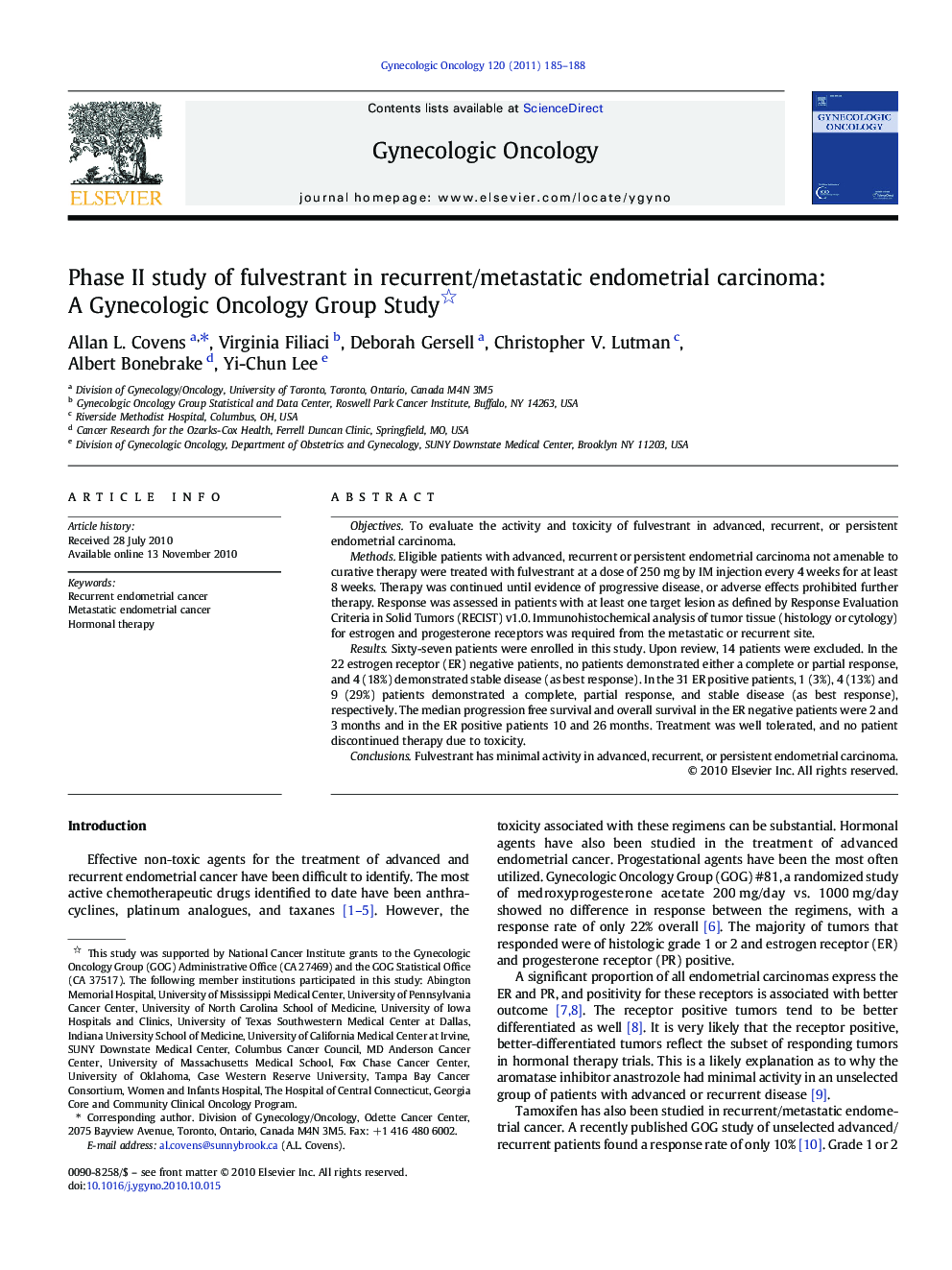| Article ID | Journal | Published Year | Pages | File Type |
|---|---|---|---|---|
| 6184757 | Gynecologic Oncology | 2011 | 4 Pages |
Objectives.To evaluate the activity and toxicity of fulvestrant in advanced, recurrent, or persistent endometrial carcinoma.Methods.Eligible patients with advanced, recurrent or persistent endometrial carcinoma not amenable to curative therapy were treated with fulvestrant at a dose of 250Â mg by IM injection every 4Â weeks for at least 8Â weeks. Therapy was continued until evidence of progressive disease, or adverse effects prohibited further therapy. Response was assessed in patients with at least one target lesion as defined by Response Evaluation Criteria in Solid Tumors (RECIST) v1.0. Immunohistochemical analysis of tumor tissue (histology or cytology) for estrogen and progesterone receptors was required from the metastatic or recurrent site.Results.Sixty-seven patients were enrolled in this study. Upon review, 14 patients were excluded. In the 22 estrogen receptor (ER) negative patients, no patients demonstrated either a complete or partial response, and 4 (18%) demonstrated stable disease (as best response). In the 31 ER positive patients, 1 (3%), 4 (13%) and 9 (29%) patients demonstrated a complete, partial response, and stable disease (as best response), respectively. The median progression free survival and overall survival in the ER negative patients were 2 and 3Â months and in the ER positive patients 10 and 26Â months. Treatment was well tolerated, and no patient discontinued therapy due to toxicity.Conclusions.Fulvestrant has minimal activity in advanced, recurrent, or persistent endometrial carcinoma.
Research highlightsâºFulvestrant has minimal activity in advanced/recurrent endometrial carcinoma âºStandard hormonal therapy for ER/PR+ patients is megestrol acetate +/â tamoxifen âºPresently, the management of ER/PRâ patients appears to be cytotoxic chemotherapy
